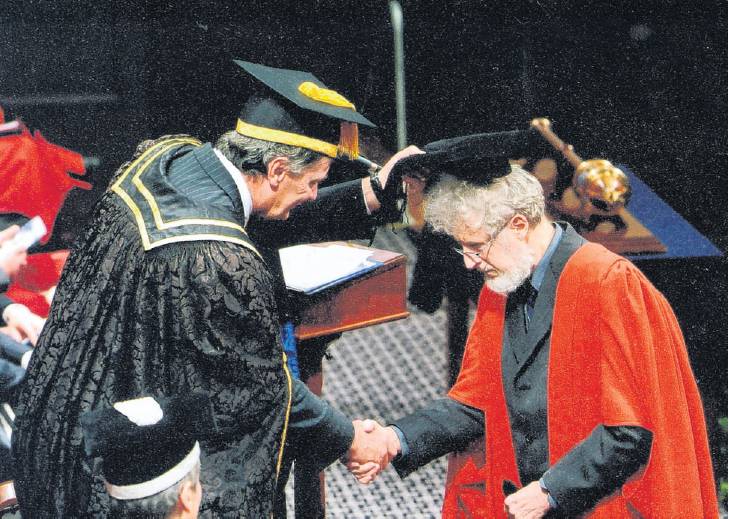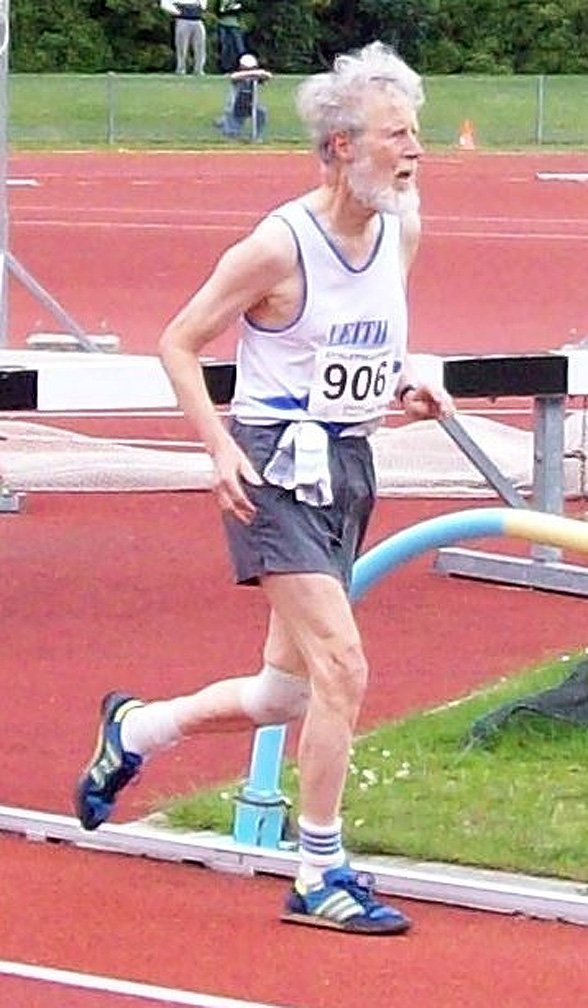
JAMES ROBERT FLYNN
Moral philosopher, politics scholar and intelligence researcher
Emeritus Prof Jim Flynn became one of the University of Otago’s most internationally well known scholars by fearlessly investigating race, IQ and intelligence and why humane ideals should be supported.
A former long-serving head of the Otago politics department, he was most well known internationally for his ground-breaking research involving the ‘‘Flynn effect’’, a substantial rise in intelligence test scores from about 1930 to the present.
Born in the United States in 1934, he spent 1967-2017 at the university, including 29 years, until December 1996, as foundation head of the politics department.
He died at the Yvette Williams Retirement Village in Dunedin on December 11, aged 86.
Otago University vice-chancellor Prof Harlene Hayne said Prof Flynn was ‘‘a legendary teacher and a giant amongst scholars’’.
‘‘His work was highly cited across a number of disciplines, his research made a real difference in the world and his ideas had an immense reach, from high school classrooms to the frontiers of social science research.
‘‘He was an iconic figure around our campus and there will never be another like him,” she said.
Dunedin Mayor Aaron Hawkins said Prof Flynn was ‘‘an absolute giant of teaching, researching, campaigning and both university and civic life - he will be missed’’.
Prof Flynn also published many books on topics ranging widely from intelligence to American foreign policy, and including What is Intelligence?, How to Defend Humane Ideals? and The Torchlight List: Around the World in 200 Books.
What is Intelligence? sparkles with both wit and wisdom, as when he considers the effects of training and genetics on running performance:
‘‘There are runners I cannot beat even when I train more than they do. But I can run rings around every couch potato within 20 years of my age,’’ he wrote.
‘‘The best chance of enjoying enhanced cognitive skills is to fall in love with ideas, or intelligent conversation, or intelligent books, or some intellectual pursuit.’’
That approach meant ‘‘constant and instant access to a portable gymnasium that exercises the mind’’, he wrote.
Prof Flynn also received the university’s Medal for Distinguished Career Research, and was awarded an Otago honorary doctorate of science.

A Fellow of the Royal Society of New Zealand, he also received its Aronui Medal for research of outstanding merit in the humanities.
He was an Honorary Fellow for life of the New Zealand Psychological Society, receiving the society’s Special Award in 1998.
In 2007, the International Society for Intelligence Research made him a Distinguished Contributor, and he was also made a Cambridge University Distinguished Associate of the Psychometrics Centre.
He was also profiled in popular science magazine Scientific American.
His extensive knowledge and communication skills were reflected in his 2013 TED talk, titled ‘‘Why our IQ levels are higher than our grandparents’’, which has been viewed more than 2.8 million times.
In a graduation address after receiving his Otago honorary doctorate in May 2010, he urged students to read more works of great literature to overcome a ‘‘love-of-reading deficit’’.
As a moral philosopher studying politics and psychology, he enjoyed teaching, and was still lecturing many years past retirement age.
However, over the past 50 years, he had noticed that fewer students were reading great works.
A new teenage subculture was ‘‘strongly visual, with leisure time spent on the web and watching TV and films’’.
He suspected this subculture had little time to focus on reading literature that required concentration and wide general knowledge.
‘‘You are unlikely to enjoy Tolstoy’s War and Peace if the vocabulary is unfamiliar and you do not know who Napoleon was or where Russia is.
‘‘Let me convince you how pleasurable it will be for you to learn through literature.
‘‘Both you and your civilisation will be better off,’’ he said.
After his departmental headship, he became, in 1997, joint emeritus professor in politics and psychology until retiring last year.
He remained an extremely active lecturer and researcher in both disciplines and is still New Zealand’s most quoted scholar.
He taught his last university paper last year, in psychology: ‘‘Justice, Race and Class’’.

Of his half-dozen US running medals, his favourite was a bronze for the US Cross Country (Amateur Athletics Union of the United States) 1954 - 2nd Team.
Leith Harrier and Athletic Club president Chris Sole recently praised Prof Flynn for his long and valuable involvement with the club, including as a former president.
At the Otago Interclub Track and Field Meeting in February last year, Prof Flynn won the men’s over-50 400m sprint, and was second in the men’s over-50 grade 200m, in his best time of the season (57.95 seconds).
He still holds the 75-79 age grade Otago Masters record in the 10,000m of 59 minutes 35.43 seconds.
From 1981, when Prof Flynn began investigating US Armed Forces mental records, he produced many publications on intelligence, race and worldwide rises in IQ scores over time.
Prof Robert Patman, also of the politics department, recently reflected that Prof Flynn was active in the political arena, as a founding member of the New Labour Party and the Alliance, and standing as a parliamentary candidate in Dunedin North at the 1993 general election.
After Otago Daily Times reports that the Alliance campaign was going better than expected, he and another colleague ‘‘started teasing Jim that if he won the seat he would have turn his back on his academic career and move to Wellington’’, Prof Patman said.
‘‘But Jim was not fazed by that prospect. ‘Look, if I win, I will demand a recount!’,’’ he had said.
Prof Patman, having arrived in Dunedin from England in 1991 as a lecturer in international relations, said by the early 1990s, Prof Flynn had already established an outstanding international reputation in political philosophy and human intelligence studies.
After his headship, Prof Flynn produced ‘‘an astonishing number of publications’’ over the past 24 years, including Fate & philosophy: A Journey Through Life’s Great Questions (2012), and Are We Getting Smarter? Rising IQ in the Twenty-First Century (2012), Prof Patman said.
Prof Flynn also became a globally renowned author of books on many subjects, including Beyond Patriotism: From Truman to Obama (2012) , which gave a ‘‘starkly honest’’ appraisal of the US role in international affairs, he said.
In this book Prof Flynn also suggested people ‘‘whose first allegiance is to the world community’’ could wear a blue ribbon, despite the risk of being thought a ‘‘political bore’’.
‘‘We must learn to walk into history without following flag,’’ he said.
The Torchlight List: Around the World in 200 Books (2010) analysed literature which illuminated our world.
A Book Too Risky to Publish: Free Speech and Universities (2019) asked if universities still advanced free inquiry and critical thinking; and climate change solutions were considered in No Place to Hide: Climate Change (2018).

Born in Washington DC in 1934, during the Great Depression, Prof Flynn later described how several factors, including his Missouri-born, Irish-American parents’ attitudes on racial issues and his adolescent rejection of Catholicism, galvanised a nascent socialism and underscored the importance of pursuing engaged research that promoted racial and social equality.
His father, Joseph Flynn, was a hard-drinking newspaper editor who prided himself on doing the Times crossword puzzle in ink.
His mother, Mae Flynn, was a gentle person and office worker who had trained as a teacher.
His brother, Joe, became an award-winning chemist.
Mrs Flynn, then 17, had been on a picket line over racial equality issues when she and her husband-to-be, then 26, first met at the Glen Echo Amusement Park in Glen Echo, Maryland, a short drive from Washington DC. A scholarship to the University of Chicago led to Prof Flynn’s PhD in 1958.
A self-professed ‘‘atheist, a scientific realist, a social democrat’’, he became a member of the Socialist Party of America.
He served as chairman of the Congress of Racial Equality (CORE), a civil rights organisation in the US South.
Being politically active led to him being “roughed up” during a CORE demonstration, and being removed from responsibilities, including coaching running at the University of Eastern Kentucky.
Increasingly disturbed by Cold War America’s prevailing rhetoric, he was also forced to leave Lake Forest College near Chicago for giving a lecture on social medicine, his work as a peace activist and his socialist party membership.
In 1963, aged 29, he, wife Emily and young family headed for New Zealand and a teaching position, initially at Canterbury University.
Mrs Flynn said her husband had initially followed his father’s religion and became a choir boy in Washington DC’s Catholic Cathedral, also going to St Paul’s Primary School.
When he was 12 he entered a city-wide competition, winning a full set of the World Book Encyclopedia.
However the book’s explanation for the development of our solar system by evolution from a cloud of elements, as opposed to creation, shattered his faith in the existence of a god.
He soon worried about why people should behave well if there was no God. At Chicago University, his PhD dissertation was titled ‘‘Ethics and the Modern Social Scientist’’, and in 1969 he published Humanism and Ideology.

Finally, in 2000 he published How to Defend Humane Ideals?, which was dedicated to his wife.
‘‘Jim both terrified and awed me from the first day I met him,’’ Mrs Flynn said in a recent tribute.
‘‘He was the smartest person I had ever met.
‘‘He ticked the entire list of qualities I wanted in a husband and which I had written down in my diary at the age of 15.
‘‘He was TALLER than me. He was SMARTER than me. He made me laugh. His politics were left wing. He could stand up to my mother. AND he had a career with a pension at the end.
‘‘I proposed to him three times during the next year. Twice he refused on account of my age - but I finally wore him down.’’
Later they found Dunedin ‘‘so friendly and beautiful’’, and both flourished there.
Prof Flynn’s work in intelligence might initially seem like ‘‘an odd detour’’.
‘‘But, as with everything else, it grew out of his desire to debate rationally with those who argued that some races were intellectually inferior,’’ she said.
Her husband had had ‘‘85 amazing and rewarding years’’, but his 86th and last was difficult.
His bowel cancer, which had been operated on in September 1999, returned last May, requiring liver surgery, but cancer came back again.
‘‘Everyone knows that Jim was smart, but not everyone knew how funny Jim was.
‘‘We were always laughing.’’
At home, he read constantly but was always ready for a conversation, to visit friends or to go to St Clair Beach and have a cup of coffee, enjoying company and lively conversations.
Prof Flynn is survived by Mrs Flynn, their son Victor, a professor of mathematics at the University of Oxford, and daughter Natalie, who is a clinical psychologist in Auckland.
PROF JIM FLYNN - THE TRIBUTES FLOW...
PROF Robert Patman, former head of the Otago politics department:
‘‘Jim had many fine qualities: raw courage, razor sharp analytical skills, a phenomenal memory, gritty determination, tremendous integrity and a wonderful wit.

‘‘But the quality that shines through for me was his sense of humanity.
‘‘Jim’s life seemed to be dedicated through his teaching, his books and outreach activities to diagnosing and correcting the causes of misery and injustice that affect people within and between nations.’’
Prof Jamin Halberstadt, Otago psychology department head:
‘‘Jim Flynn was a singular, outsized personality, consummate academic, brilliant and uncompromising communicator, and role model in the department of psychology.
‘‘He showed what was possible with the right combination of scholarship, integrity and genius. There was nobody like him.
‘‘He was both the smartest and the most learned man I ever met’’.
Associate Prof Charles Pigden, Otago philosophy department:
‘‘Jim was one of the most remarkable human beings I have ever met, the very paradigm of a politically engaged academic.
‘‘He was dedicated to truth, freedom and the public good, more or less in that order.’’
Political commentator Chris Trotter:
Prof Flynn’s political argument, however hard to sell, was that “left-wing political leaders ... have a moral obligation to demonstrate, by drawing up a mathematically coherent alternative Budget, how all the good things they are promising will be paid for”.
Richard Nisbett, Professor Emeritus of Psychology, University of Michigan:
‘‘Jim was one of the most important psychologists of his generation — particularly impressive since he was trained as a political scientist.
‘‘With Bill Dickens, Jim showed that environments have a far greater impact on intelligence than is suggested by the high correlation that exists between the IQs of identical twins.
‘‘The world has lost one of the broadest and deepest thinkers of the age.’’
University of California professor of psychology Arthur Jensen:
So well-reasoned was Flynn’s 1980 publication Race, IQ and Jensen that several years later Jensen praised the critique of his work for its contribution to literature on the topic, saying it was ‘‘virtually in a class by itself for objectivity, thoroughness and scholarly integrity’’.
Charles Murray, Emeritus Scholar, American Enterprise Institute:
‘‘My guess is that every scholar with whom Jim ever interacted, of whatever ideological or intellectual persuasion, is mourning his death as I am - partly because of the simple affection we felt for him, and more profoundly because Jim represented what a scholar is supposed to be - open, curious, passionate about his beliefs but without either self-righteousness or rancour, determined above all else to get it right.’’
Prof Ian Deary, University of Edinburgh:
‘‘James Flynn’s contributions to the study of human intelligences differences are huge.
‘‘I clearly recall his deservedly famous ‘Flynn effect’ papers appearing in 1984 and 1987; they shook the field, and still do to this day.
‘‘The word humane keeps coming up in my mind.
‘‘I read most of his books and I retain the impression that he was always trying both to diagnose and correct unfairness among people.’’
Diane Halpern, Emerita Professor of Psychology, Claremont McKenna College, and American Psychological Association past-president:
‘‘He was always outspoken, generally kind and careful about his conclusions.
‘‘All of this from someone who looked like Santa Claus.
‘‘Because of the incredible influence he had on the field of intelligence, his legacy will live on for future generations.’’
Emeritus Prof Richard Haier, School of Medicine, University of California, Irvine:
‘‘Jim Flynn became famous for showing a global secular rise in IQ scores, but he was admired even more for engaging with critics as a gentleman.
‘‘In a field raked with controversy and not without personal attacks, Jim sought out contrary opinions and engaged intellectually."
Robert Sternberg, professor of human development, Cornell University:
‘‘It is very easy to write about Jim because he has been - I think without question - the most important intelligence theorist since Charles Spearman, whose 1904 paper and then 1923 and 1927 books essentially established the field as it is today.
‘‘Jim’s work on what is now called the ‘Flynn effect’ revolutionised thinking about intelligence.
‘‘One would expect the most brilliant scholar in a field of a century to be conceited.
‘‘In all my interactions with him, Jim was modest, never condescending and always open to new ideas.’’
Bill Dickens, Distinguished Professor of Economics and Social Policy at Northeastern University:
‘‘Much of his writing was in areas where he had mastered large difficult literatures in record time, largely on his own.
‘‘He was remarkable in his ability to walk into as technical an area as psychometrics, digest it with minimal background in mathematics and then turn around and make compelling contributions worthy of an expert in the field.’’












